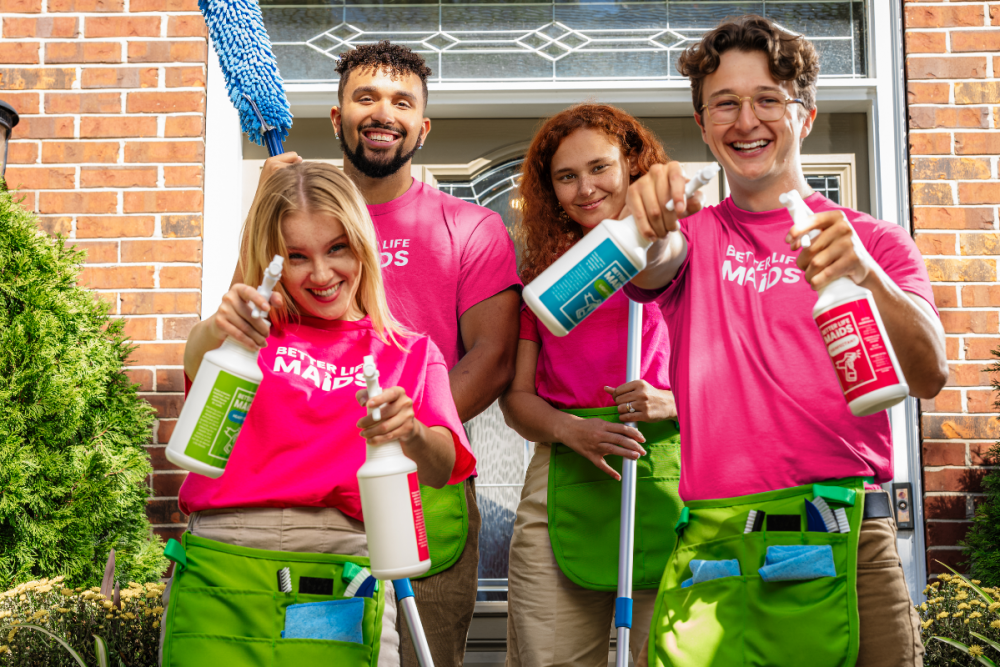The Uberization of Home Services: Is a Cleaning Gig-Economy Inevitable?

As platforms like Uber, Instacart, and TaskRabbit redefine labor markets, will residential cleaning follow suit—or is there a better way forward?
The Gig-Economy Disruption in Home Services
Over the past decade, gig platforms have transformed industries by making services more accessible, affordable, and convenient. Uber revolutionized transportation, Instacart reshaped grocery shopping, and TaskRabbit turned household chores into an on-demand service. Given this trend, it’s natural to ask: Will residential cleaning be next? And if so, is that a good thing?
The Rise of Gig-Based Cleaning Platforms
Companies like Handy, TaskRabbit, and Tidy have attempted to Uberize home cleaning by offering instant booking, flexible work arrangements, and competitive pricing. The promise is simple:
- Customers get fast, convenient, and affordable cleaning without long-term commitments.
- Workers have the flexibility to accept jobs on their own terms.
- Technology streamlines the process, making it easy to book, rate, and pay for services.
At first glance, this seems like a win-win. However, beneath the surface, the gig model introduces significant trade-offs—especially in an industry where trust, consistency, and quality matter.
The Hidden Costs of Gig-Based Cleaning
Quality Control, Inconsistency, & Failure to Deliver
Unlike ridesharing, where the service is relatively standardized, home cleaning requires skill, attention to detail, and consistency. Gig-based cleaners often lack formal training and quality assurance processes, leading to unpredictable service levels. Customers booking through a gig platform might get an outstanding clean one time and a subpar experience the next—without any real recourse. Even worse, platforms like HomeAglow make big promises of $19 cleanings. In reality, consumers are signing up for a monthly subscription service that is expensive to cancel. Ultimately, the platform can’t get enough cleaners to meet their promises—leaving upset consumers paying for a subscription they can’t use.
The Trust & Security Problem
Cleaning professionals enter private homes, making trust a non-negotiable factor in this industry. While platforms claim to vet their workers, the reality is that screening processes vary widely, and customers often don’t know who is showing up at their door. Unlike traditional cleaning services, which build long-term relationships with clients, gig-based models struggle with accountability, repeat service consistency, and handling customer complaints effectively. At Better Life Home Cleaning, on average it takes 400 applications to make a single hire. These platforms would likely consider most of those applicants as potential cleaners. The standards of service and quality would be enough of a concern, but in an environment where you have the keys to the house as a standard part of doing business, making sure the right people have access is critical.
The Worker Experience: A Race to the Bottom?
One of the biggest criticisms of the gig economy is its impact on workers. Gig-based cleaning jobs often offer low wages, no benefits, and inconsistent work schedules. Many workers find themselves in a race to the bottom, accepting lower rates just to stay competitive.
Compare this to employee-based cleaning companies that invest in their teams through training, career development, and benefits. When workers are treated as professionals—not just independent contractors—they deliver higher-quality service and build lasting customer relationships. At Better Life Home Cleaning, our average technician wage as of February 2025 is $22.48 per clock hour before tips. In addition, they earn PTO and have a full suite of benefits, including health, vision, dental, short-term disability, and a matching 401 (k) retirement. Another thing that gig workers have to account for is the added tax burden that employers cover and did not account for that in the rates they accepted on the platforms.
The Alternative: A Premium, High-Touch Future for Home Services
Rather than chasing the lowest-cost model, some companies—including Better Life Home Cleaning—are taking a different approach. Inspired by high-touch service brands like Ritz-Carlton and Nordstrom, these companies focus on expertly trained employees, consistent quality, and exceptional customer experiences.
Instead of competing on price alone, premium cleaning services emphasize:
- Reliability & Trust: Customers know who is coming into their home and can expect consistent service.
- Quality Assurance: Trained professionals follow standardized cleaning processes to ensure high-quality results.
- Customer Relationships: Cleaning isn’t just a one-time transaction—it’s a long-term service relationship built on trust.
The Future: Will Gig-Based Cleaning Coexist with Premium Services?
Looking ahead, we may see a two-tier industry emerge:
- Gig-based cleaning services catering to budget-conscious, one-time customers.
- Premium, employee-based services for clients who value consistency, trust, and high-quality service and typically choose a higher frequency of cleaning service, typically every week, every two weeks, or every four weeks.
While gig models offer convenience, they may never fully replace the demand for personalized, high-touch services in home cleaning. Technology, automation, and AI-driven scheduling can enhance premium models without sacrificing quality or worker stability.
Conclusion: The Path Forward for Residential Cleaning
The gig economy may be here to stay, but it’s not the only path forward for residential cleaning. While Uber-like platforms can serve a segment of the market, premium service providers that prioritize trust, consistency, and quality will continue to thrive.
Consumers and business owners must decide: Do we prioritize speed and price above all else, or do we value reliability, professionalism, and long-term relationships? The future of home services will be shaped by this choice. At Better Life Home Cleaning our core belief is that Better Job=Better Service, so perhaps we are biased. But we believe that customers who value trust, safety, reliability, and consistency are getting a better value than the gig services can provide.